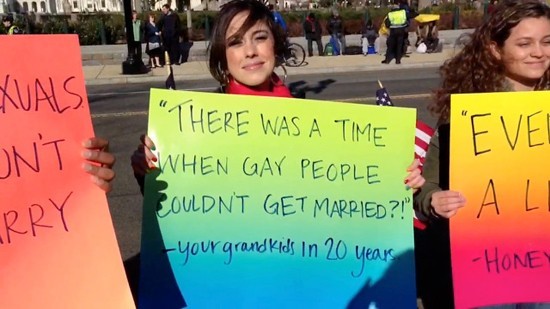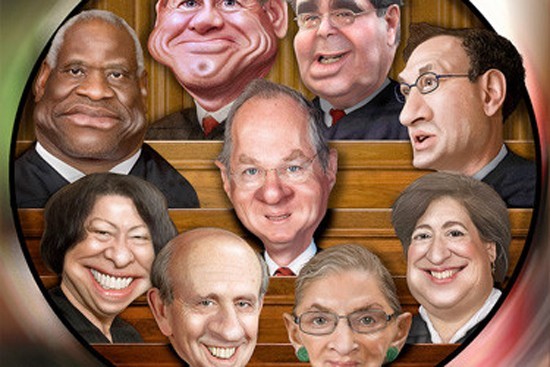Author: Susannah Birch
Publication: The Toowoomba Chronicle
Publication Date: March 5, 2013
WITH the arguments in the US Supreme Court on the constitutional right for gay people to marry, I’ve seen so many arguments both for and against.
I don’t pretend to know all the issues of either side or have all the answers, but there are a few repetitive arguments that I’m really having trouble with.
The least sensible (and most common) argument is the slippery slope contention.
The one claiming that allowing gay marriage will set up a precedent for all other types of marriage including incestuous and polygamous marriage.
I do not get this argument on any level – the precedent has already been set and the entire argument is back to front.
Polygamous marriage is allowed in nearly 50 countries and in Queensland, an uncle/aunt can legally marry a niece/nephew.
Even closer incestuous marriages have occurred throughout history, among both royalty and many other social classes.
With gay marriage not having a history of wide acceptance, it in itself is the last step on the ‘slippery slope’ anti gay marriage advocates fear so much.
This means one of two things. It’s not the precedent that people are worried about, but the issues of religion – most countries that practice polygamy are either non-Christian or sect based.
The second issue is acceptability.
While certain other countries encourage polygamy and/or incestuous marriage, the Western world prefers to live under the impression that they are more advanced and enlightened.

Unfortunately this is a double standard. Many people are happy to accept friends and relatives as gay, but are anti-gay marriage.
With the age-old idea of marriage as a way to avoid “living in sin”, refusing gays the right to marriage is essentially saying that you accept their choice but still consider what they are doing a sin which can never be absolved.
People need to closely examine whether they are against same sex marriage or marriage equality.
They need to decide based on the issue at hand, not what could or may happen later. Just as interracial marriage was looked down upon (and in the US even made illegal till 1967), gay marriage is looked down upon by many.
Maybe it’s time to rethink the reasons.
Or maybe, a whole new angle needs to be taken, with both sides fighting to remove marriage as a legal term and keep it as a religious one only…

